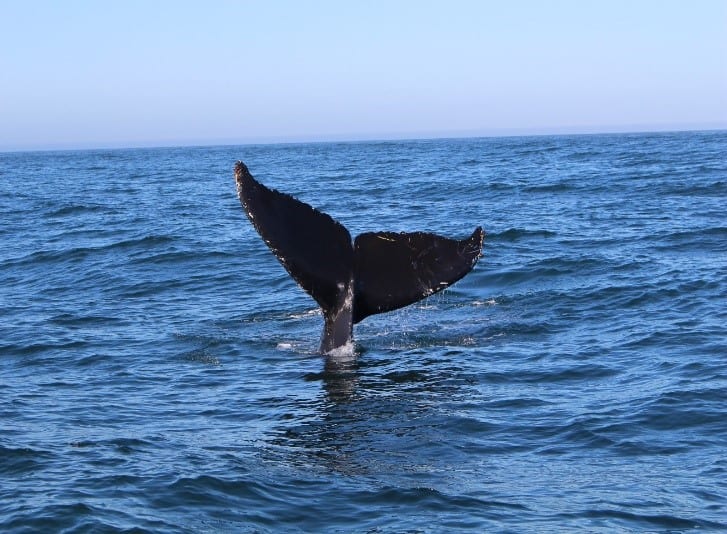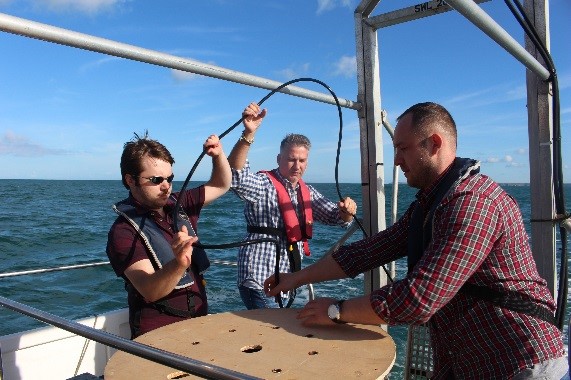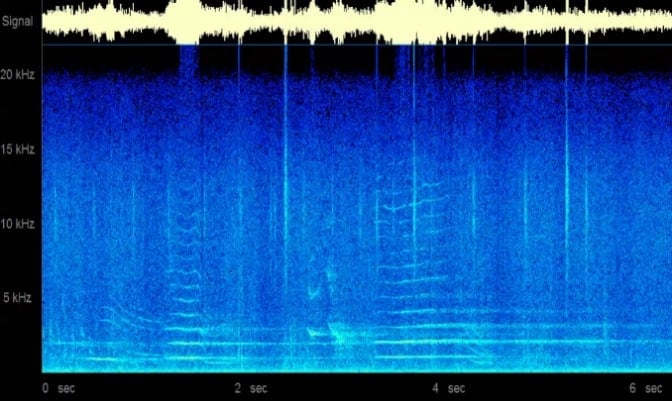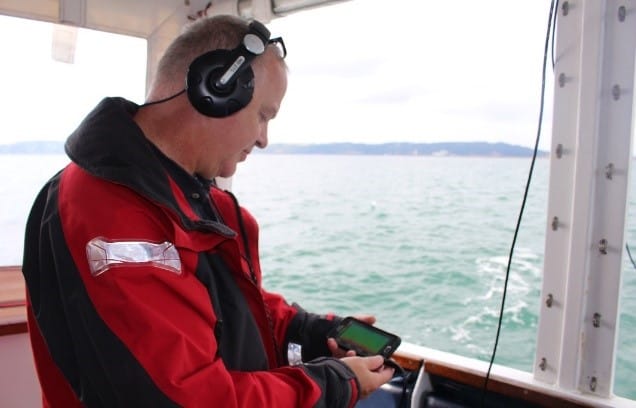Dates are being revised due to Covid-19
Whales singing, dolphins whistling and killer whales clicking are all sounds we have heard whilst watching TV documentaries. But have you ever wondered how humans actually listen and record these incredible sounds? FSC has partnered with Seiche training, who deliver acoustic monitoring courses to the general public and wildlife enthusiasts. This course is ideal for those who want to experience and learn more about the sounds produced by marine mammals. The course incorporates a mixture of classroom based learning, where you will learn how underwater sounds can impact marine mammal behaviour, and hands-on learning with the hardware used by scientists to record these sounds. We will guide you through step by step workbooks so you can capture underwater sounds and analyse them through software, allowing you to visualize and understand their characteristics. What better way to try out your new skills than by taking them out on the water – using a chartered boat we will explore this underwater world and hopefully find some whistling dolphins or clicking porpoises.
Tutor: Stephanie Barnicoat
Stephanie Barnicoat was awarded her BSC in Marine Biology from Bangor University, and subsequently her MSc in Biological Diversity from University of Plymouth. She works in the Bioscience Group at Seiche as a specialist in bioacoustics and marine mammals. With extensive experience working offshore as an environmental consultant, she carries out visual and acoustic surveys on seismic exploration projects, windfarm installations and in marine mammal research around the world. Stephanie also develops and delivers courses for Seiche Training, including the PAM Levels 1 and 2, the MMO and PSO courses. Her other roles include: data analysis for the presence of marine mammals in acoustic data, environmental monitoring, and the installation and operation of PAM systems in the field. In her spare time, she is a member of the British Diver Marine Life Rescue (BDMLR) team where she assists in the rescue and rehabilitation of abandoned or injured seal pups and other marine fauna. She is also on the committee for a local conservation group where she carries out marine mammal surveys.
Example Timetable
Monday: Centre welcome and an introduction to sound in water and using Passive Acoustic Monitoring (PAM)
Tuesday: Marine mammal acoustics and communication, getting to grips with PAMGuard
Wednesday: Boat trip with the opportunity to use PAM and PAMguard
What's Included
Before You Attend
Start and Finish Times
Resident visitors are requested to register at the main office between 4.00 – 5.30pm. Dinner will be at 6.00pm. An introductory talk will follow. Breakfast will be at 8.00am. The course will finish at 4pm on the last day. Non-resident guests are asked to arrive in time for the welcome talk at approximately 5.30pm.
What to Bring
- Waterproof clothing and warm clothes for the boat
- Close toed shoes for the boat
- Sunglasses, sunscreen, sun hat for the boat
- Camera
- Laptop - download PAMGuard software from www.pamguard.org
- Binoculars
Sorry this course has ended




